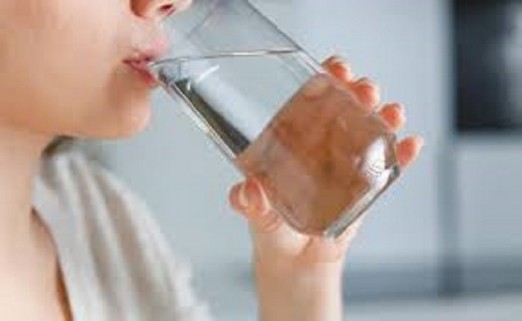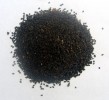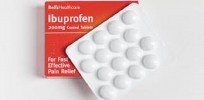Are you drinking more water than required?

February 4,Kathmandu . 60% of our body is water. For this body machine to function properly, it is necessary that every cell of the body gets sufficient amount of water and oxygen at all times. The body should remain hydrated i.e. there should be no shortage of water in the body.
Hydration plays a central role in almost all the activities happening continuously within the body for 24 hours. If there is enough water in your body then-
- The body temperature will remain normal.
- The digestive system will remain healthy.
- Blood circulation will continue properly.
- The process of destruction of damaged body cells and formation of new cells will continue.
- The work of removing waste from the body will continue smoothly.
- All the body organs will continue to do their respective functions.
This was about adequate hydration. But what happens when adequate hydration turns into excessive hydration? In the language of science, this is called overhydration or hyponatremia.
You must have often heard people say that drinking water is good for health. One should drink a lot of water. There are disadvantages of drinking less water, but there are no disadvantages of drinking too much water.
But this is not true.
There is a book- 'Waterlogged: Serious Problems of Overhydration in Endurance Sports.' The author of this book, Dr. Timothy Knox, is a professor in the Division of Exercise Science and Sports Medicine at the University of Cape Town. He writes- "Overhydration can sometimes be more dangerous than dehydration. Keeping the body hydrated does not mean that we keep drinking water throughout the day. Our kidneys have the ability to process a certain amount of water in 24 hours. More water than that can accumulate in the kidneys and the body and cause hyponatremia."
According to a water toxicity study published in the National Library of Medicine in the year 2023, overhydration can reduce the amount of electrolytes in the body. This is called hyponatremia in the language of science.
What causes hyponatremia or overhydration
There can be two main reasons for this-
1- Either you are drinking too much water.
2- Or your kidneys are retaining water.
Dr. says that both the reasons can cause water toxicity in the body. This is also called water poisoning. In this, the amount of water in the body becomes so much that the kidney is not able to filter it out and remove it from the body. In hyponatremia, the essential electrolytes of the body dissolve in water and start coming out of the body.
Before proceeding further, it is important to understand what these electrolytes are, which are removed from the body due to drinking excess water.
What are electrolytes?
According to the Medicine Dictionary of Harvard Medical School, electrolytes are small mineral substances dissolved in water. They work to balance the chemical reactions of our body and the amount of water inside and outside the cells. Their imbalance can cause many types of disorders in the body.
Electrolytes contain these four main elements-
- Sodium
- Magnesium
- Potassium
- Calcium
If the amount of sodium or salt in the body becomes very low, then water enters the cells and causes swelling in the hands and feet and inflammation inside the body.
How to Know if You're Overhydrated
Dr. says that if the symptoms of hyponatremia have become acute in your body, then doctors will have to do tests to detect it. But we can usually do a small experiment at home to find out whether we are over or under hydrated.
For this we have to check the colour of our urine.
Under hydrated urine- Look at the urine after urination. If the urine is dark yellow in colour, it means that your body is dehydrated. You are not drinking enough water.
Over hydrated urine- If the color of urine is like transparent water then it means that you are over hydrated. You are drinking more water than required and along with water, electrolytes are also going out of the body through the kidneys.
Normal hydrated urine- Normal urine is light yellow in color. Neither completely transparent nor dark yellow.
How much water should we drink
Water requirement depends on many factors. Such as-
- Gender
- Age
- Country
- Season
- Geographical location
- Physical Activity
- If a woman is pregnant or breastfeeding
Apart from this, the body also needs to drink more water in these situations-
Weather or high altitude: If you live in a hot climate or at an altitude of more than 8,200 feet above sea level, you need to drink more water.
If you do heavy workout- According to the American Council of Exercise, if you do workout, you should drink 500 to 600 ml of water two to three hours before the workout. Apart from this, you should drink more water after heavy workout as well.
In case of fever or diarrhea- If you have fever, vomiting or diarrhea, you should drink more water than usual. In such a case, you can also take extra electrolytes.
Hydration of the body does not depend only on water
Dr. Timothy writes that balanced hydration of the body does not depend only on the amount of water. It also depends on our lifestyle. The body becomes dehydrated not only due to less water but due to many reasons.
Be it nature or our health, balance is the most basic thing. So do not overdo anything. Avoid dehydration and also overhydration. Check the color of your urine and always stay healthy.
Share this with your friends:
प्रत्येक महिला पुरुषभन्दा कमजोर छैनन् : कमला भासिन
 नरेश ज्ञवाली ►
भदौ २७, काठमाडौं। दक्षिण एसियामा लैङ्गिक समानता, शिक्षा, गरिबी निवारण, मानवअधिकार र शान्तिका...
नरेश ज्ञवाली ►
भदौ २७, काठमाडौं। दक्षिण एसियामा लैङ्गिक समानता, शिक्षा, गरिबी निवारण, मानवअधिकार र शान्तिका...
पुरुष कलमले पूर्ण नारीलाई लेख्न सक्दैन
 काठमाडौं। मान्छेहरू कडा भएर बोलेको भन्दा नरम भएर बोलेको मनपर्छ । खरा कुराभन्दा नरम, सरस र सलिल कुराहरू मनपर्छ । तर...
काठमाडौं। मान्छेहरू कडा भएर बोलेको भन्दा नरम भएर बोलेको मनपर्छ । खरा कुराभन्दा नरम, सरस र सलिल कुराहरू मनपर्छ । तर...
कालो तिलले कम्मर दुखेको र अनुहारमा भएको पोतोको उपचार गर्छ
 काठमाडौं । कालो तिल अथवा तिलबाट प्राप्त हुने बिऊ तेल उत्पादनको लागि प्रयोग गरिन्छ । अनुहारमा चायाँ, पोतो वा दाग,...
काठमाडौं । कालो तिल अथवा तिलबाट प्राप्त हुने बिऊ तेल उत्पादनको लागि प्रयोग गरिन्छ । अनुहारमा चायाँ, पोतो वा दाग,...
दुबईमा पहिलो पटक नेपाली कल्चरल पहिरनको फेसन शो सम्पन्न
 काठमाडौं। गत माघ २८ गते दुबईमा नेपाली कल्चरल पहिरनको फेसन शो पहिलो पटक फेसन फ्युजन २०१७ सम्पन्न भयो । एनआरएन...
काठमाडौं। गत माघ २८ गते दुबईमा नेपाली कल्चरल पहिरनको फेसन शो पहिलो पटक फेसन फ्युजन २०१७ सम्पन्न भयो । एनआरएन...
उमेर अनुसारको हुनुपर्छ खान्की, अनि मात्र मानिस स्वस्थ रहन्छ
 काठमाडौं। पोषणको आवश्यकता उमेरअनुसार परिवर्तन हुन्छ । उमेरको हरेक अवस्थामा स्वयंलाई स्वस्थ राख्न शरीरलाई...
काठमाडौं। पोषणको आवश्यकता उमेरअनुसार परिवर्तन हुन्छ । उमेरको हरेक अवस्थामा स्वयंलाई स्वस्थ राख्न शरीरलाई...
यी भोजन खाए छाला सुन्दर हुन्छ !
 काठमाडौं। स्ट्रबेरी : यो भिटामिन सीले भरपुर हुन्छ । भिटामन सीले छालालाई चाउरीबाट जोगाएर सधैं जवान राख्न मद्दत...
काठमाडौं। स्ट्रबेरी : यो भिटामिन सीले भरपुर हुन्छ । भिटामन सीले छालालाई चाउरीबाट जोगाएर सधैं जवान राख्न मद्दत...
मुलुकका सम्मानित पदमा महिलाको उपस्थिति, सबैका लागि आशाको ढोका उघारे
 काठमाडौं। अहिले नेपालका तीनवटै अंगका प्रमुख महिला भएकाले नेपाली राजनीतिक क्षेत्रमा मात्र नभएर सामाजिक...
काठमाडौं। अहिले नेपालका तीनवटै अंगका प्रमुख महिला भएकाले नेपाली राजनीतिक क्षेत्रमा मात्र नभएर सामाजिक...
लोग्नेमान्छेको जात केटी देखेपछि.....
 काठमाडौं । शान्ताको विवाह भएको पाँच वर्ष बितिसक्दा पनि छोराछोरी भएनन् बरु उनलाई एकाएक ब्लड क्यान्सर भयो । समयले...
काठमाडौं । शान्ताको विवाह भएको पाँच वर्ष बितिसक्दा पनि छोराछोरी भएनन् बरु उनलाई एकाएक ब्लड क्यान्सर भयो । समयले...
मनोसामाजिक समस्या के हो?
 साउन ११, काठमाडौं । मनोसामाजिक समस्या भन्नाले मन र समाज वीच हुने समस्या हो । यो जो कोही व्यक्तिलाई पनि हुन सक्छ ।...
साउन ११, काठमाडौं । मनोसामाजिक समस्या भन्नाले मन र समाज वीच हुने समस्या हो । यो जो कोही व्यक्तिलाई पनि हुन सक्छ ।...
महिलाको दोस्रो विवाहको कुरा सुन्दा पढेलेखेकैले अनुहार बिगार्छन्
 काठमाडौं। दोस्रो विवाहबारे मैले नसोचेको, नचाहेको होइन । तर, म मेरा आत्मीयसँग फेरि विवाह गर्नेबारे कुरा गर्छु,...
काठमाडौं। दोस्रो विवाहबारे मैले नसोचेको, नचाहेको होइन । तर, म मेरा आत्मीयसँग फेरि विवाह गर्नेबारे कुरा गर्छु,...










